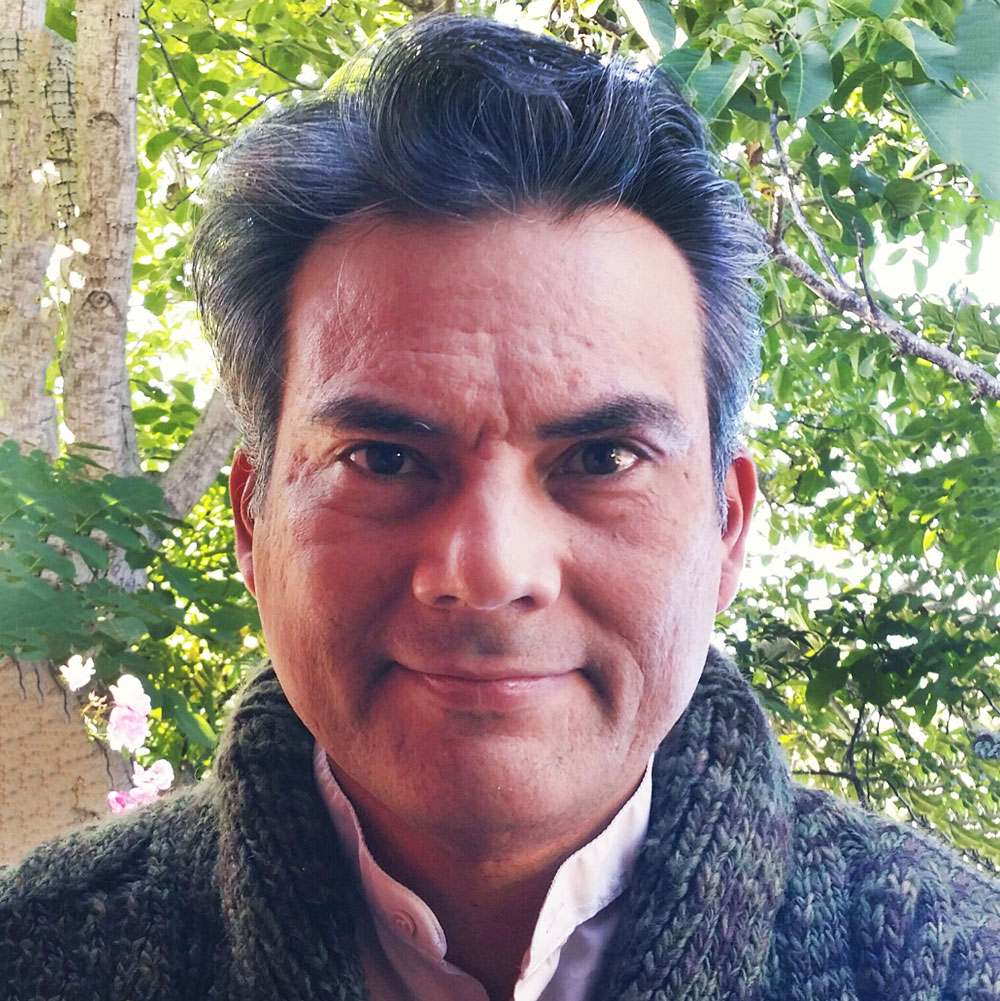A Step-by-Step Guide to Anger Issues Therapy in San Francisco
Starting anger issues therapy in San Francisco usually begins with recognizing patterns like frequent outbursts, strained relationships, or work stress, then deciding it’s time to get support. Use MiResource’s directory to find qualified local therapists who specialize in anger management, filtering by insurance, cultural fit, languages, and in-person or telehealth options. Research providers near neighborhoods convenient to you—Mission District, SoMa, Hayes Valley, Pacific Heights, Inner Sunset, or the Financial District—and read bios and availability. Schedule an initial consultation to discuss your concerns, goals, fees, and logistics like evening hours or virtual sessions. If you’re going in person, plan for transit (BART to Powell or Montgomery, Muni lines across Market, Caltrain to Mission Bay) and parking (garages like 5th & Mission or Sutter-Stockton; street parking is limited in North Beach and FiDi).
At your first session, your therapist will do an intake, review your history and triggers, and collaborate on goals such as de-escalation skills, communication strategies, and stress reduction. You’ll then follow a personalized treatment plan that may include CBT techniques, mindfulness, anger management groups, and between-session practice. Consistency matters—attend weekly or biweekly sessions, track progress, and adjust the plan as needed. If your schedule is tight or you’re outside the city, opt for virtual care; many SF clinicians offer secure telehealth that fits around commute and family time. MiResource makes it easy to compare openings and book follow-ups, helping you stay on track with a therapist who fits your needs.
Guide to Accessing Local Organizations for Anger Issues Support in San Francisco
Local organizations in San Francisco can offer practical, culturally responsive support for people working through Anger Issues, from peer-led groups to low-cost counseling and skills-based classes. NAMI San Francisco provides free peer support groups and education that can complement therapy. RAMS, Inc. (Richmond Area Multi-Services) offers multilingual outpatient behavioral health services across the city. Felton Institute provides community-based counseling and group programs for adults and youth . You can also get immediate peer support via the Mental Health Association of San Francisco’s Peer-Run Warm Line and citywide referrals through the San Francisco Department of Public Health Behavioral Health Services Access Line .
- Identify options: Search 211 Bay Area for “anger management” or “counseling” in San Francisco , and review programs at NAMI San Francisco, RAMS, Felton Institute, and MHASF.
- Check fit: Confirm services (individual therapy, groups, anger management classes), languages, insurance/sliding scale, location, and wait times on each organization’s website or listings.
- Contact: Call or email intake lines (e.g., SF DPH Behavioral Health Access Line) to ask about availability, costs, and next steps; request referrals if needed.
- Engage: Complete intake paperwork, attend an initial session or group, set goals for managing Anger Issues, and schedule follow-ups; if it’s not a fit, ask for alternative referrals.
Guide to Using Emergency Services for Anger Issues in San Francisco
Use emergency services for Anger Issues when rage feels uncontrollable, there’s a risk of harming yourself or others, you’re making threats, using weapons, or experiencing severe agitation, paranoia, or substance-related escalation. If you cannot de-escalate, are scared you might act on impulses, or others are in danger, treat it as an emergency. When in doubt, err on the side of safety and seek immediate help—fast action can prevent harm and connect you to stabilizing care in San Francisco.
Step 1: Identify a crisis. Signs include violent urges, threats, property destruction, inability to calm down, access to weapons, or thoughts of harming yourself or others. Move to a safer space and ask someone you trust to stay with you if possible.
Step 2: Contact urgent support. If there is immediate danger, call 911 and state “psychiatric emergency” so trained responders are dispatched. For 24/7 crisis counseling, call or text 988 or chat at. You can also call San Francisco Suicide Prevention at 415-781-0500 and the San Francisco Behavioral Health Access Line at 415-255-3737 for crisis help and local referrals .
Step 3: Access in-person emergency care. Go to the nearest emergency room or to Zuckerberg San Francisco General Hospital, Emergency Department, 1001 Potrero Ave, San Francisco, CA 94110 (main line: 628-206-8000). If you cannot travel safely, call 911; you can request a crisis-trained team.
Step 4: Know what to expect. Responders will ensure safety, de-escalate, and assess risk; you may receive a psychiatric evaluation, medication, safety planning, or a short hospital stay if needed. Bring ID, medications, and emergency contacts if you can, and be direct about Anger Issues, triggers, and any access to weapons.
Guide to Using Parks and Green Spaces in San Francisco to Support Mental Health
Spending time in nature can lower stress hormones, release muscle tension, and improve mood regulation—key supports for people managing Anger Issues. Gentle movement, fresh air, and green scenery help calm the nervous system and create space between triggers and reactions. In San Francisco, accessible parks and coastal trails offer grounding sights and sounds that encourage slower breathing and clearer thinking. Regular visits can build a healthy routine that complements therapy and other coping skills.
1) Find your spot: Explore Golden Gate Park (Stow Lake, Japanese Tea Garden), the Lands End Trail, the Presidio (Crissy Field and Ecology Trail), Glen Canyon Park, Mount Sutro Open Space Reserve, Twin Peaks, McLaren Park, and Dolores Park. Use SF Rec & Park maps, AllTrails, or Presidio Trust guides to match trails to your energy level and time.
2) Prepare smoothly: Check weather and wind for Ocean Beach and Lands End, wear layers, and bring water, a charged phone, and comfortable shoes. Set a simple intention (e.g., “10 minutes of slow walking and deep breathing”) to support Anger Issues goals.
3) Make the most of your visit: Walk mindfully along Crissy Field Promenade or around Stow Lake, syncing steps with steady breaths; use sights (waves, cypress trees) as anchors when irritation rises. Try short “reset” spots like Sutro Forest stairways or Glen Canyon’s creek for 3–5 minutes of box breathing.
4) Build a routine: Schedule 2–3 weekly outings—sunset at Twin Peaks, weekend loop in McLaren Park, or weekday lunch in Yerba Buena Gardens. Track how mood and reactivity change after each visit and adjust locations or durations that feel best.
Your Guide to Understanding Anger Issues
Anger Issues refer to patterns of feeling and expressing anger that are intense, frequent, or hard to control, often more than the situation calls for. You might notice quick temper flare-ups, simmering resentment, or difficulty calming down after conflicts. Physical signs can include racing heart, muscle tension, and trouble sleeping, while emotional signs may show up as irritability, frustration, or guilt afterward. Recognizing these signs doesn’t mean something is “wrong” with you—it’s a first step toward understanding your triggers and responses.
Understanding Anger Issues matters because unmanaged anger can strain relationships, affect work or school, and take a toll on your mental and physical health. When you learn what sets you off and how your body reacts, you can choose healthier ways to cope, communicate, and solve problems. Simple skills—like pausing to breathe, setting boundaries, and practicing empathy—can make a big difference. Reaching out for support can help you feel more in control and build a calmer, more connected life.
What Anger Issues Is and How It’s Defined
Anger Issues refers to patterns of anger that feel too intense, too frequent, or too hard to control, and that interfere with daily life or relationships. The American Psychological Association describes anger as a normal emotion, but it becomes a problem when it’s disproportionate, persistent, and causes distress or harm. Mental health organizations note that Anger Issues can show up as blowups, simmering resentment, or passive-aggressive behavior, especially when triggers feel overwhelming. If your anger often leads to conflict, regrets, or health strain, it may be a sign of Anger Issues that deserve care and support.
Who Anger Issues Can Affect
Anger Issues can affect anyone—kids, teens, adults, and older adults—across all genders and backgrounds. While people facing high stress, past trauma, ADHD, PTSD, chronic pain, or substance use challenges may be more likely to struggle, many otherwise well-adjusted people also experience anger that feels hard to manage. It can show up in everyday moments like traffic, crowded stores, school pressure, parenting stress, or work deadlines. You’re not alone, and support can help you handle Anger Issues in healthy, practical ways.
Why It’s Important to Learn About Anger Issues
Anger is a normal emotion, but Anger Issues can show up in ways that make daily life harder. This section covers common signs and symptoms to help you spot concerns early and consider caring next steps if needed. You’re not alone, and noticing patterns is a strong first move.
- Feeling irritable most days or getting upset more quickly than you used to
- Strong reactions to small hassles (traffic, spills, minor mistakes) that feel hard to dial down
- Physical tension during anger, like a tight jaw, clenched fists, pounding heart, or headaches
- Trouble letting go of grudges or replaying arguments long after they end
- Frequent conflicts at home, work, or online, or being told by others they feel “on edge” around you
- Regret or guilt after outbursts, promising yourself it won’t happen again but finding it hard to change
What People Want to Know about Anger Issues
- How do I know if I’m ready to start therapy for Anger Issues?
You may be ready to start therapy for Anger Issues if you notice your reactions are affecting your daily life, relationships, or work, and you want healthier ways to cope. Feeling motivated to make changes, curious about what triggers your anger, or wanting tools to manage stress are strong signs you’re ready. If you’re tired of repeating the same patterns or feeling out of control, support can help you regain balance and confidence. Reaching out is a positive, courageous first step toward relief and lasting change.
- What should I look for when choosing a therapist who treats Anger Issues in San Francisco?
Look for a therapist in San Francisco with proven experience treating Anger Issues and clients with concerns similar to yours. Ask about their therapeutic approach (such as CBT, DBT, or trauma-informed care) and how they personalize tools for managing anger. Verify licenses and credentials, and consider any specialized training in anger management. Prioritize personal fit—choose someone you feel safe with, can communicate openly with, and who sets clear, achievable goals.
- What are evidence-based therapies to treat this Anger Issues?
Evidence-based options for Anger Issues include Cognitive Behavioral Therapy (CBT), which helps you spot triggers and unhelpful thoughts and practice new ways to respond. Dialectical Behavior Therapy (DBT) builds skills for managing strong emotions, staying calm in the moment, and communicating better during conflict. Acceptance and Commitment Therapy (ACT) teaches you to notice anger without getting hooked by it and to choose actions that fit your values. These treatments have been shown to reduce outbursts and stress so Anger Issues feel more manageable in daily life.
- How long does therapy for Anger Issues usually take?
Therapy length for Anger Issues varies based on severity, the type of treatment, your goals, and individual progress. Many people notice improvement within several weeks to a few months, while more complex Anger Issues may need longer-term care; timelines can’t be guaranteed. Consistency with sessions and practicing skills between appointments greatly supports progress. In San Francisco, options include short-term, skills-focused therapy, ongoing individual counseling, and group programs for Anger Issues.
- Can I combine therapy for Anger Issues with medication?
Many people with Anger Issues find that a combination of therapy and medication can reduce symptoms and improve daily functioning. The best approach varies by person, so it’s important to make decisions with a qualified professional who understands your history and goals. In San Francisco, coordinated care—where therapists and prescribers communicate about your treatment plan—can help ensure consistent support and safer, more effective adjustments. If you’re exploring options in San Francisco, consider a provider who offers or facilitates collaboration between therapy and medication management.
- How much does Anger Issues therapy typically cost, and will insurance cover it?
Anger Issues therapy costs vary based on location, provider type, and session length—expect higher rates in San Francisco, with fees differing between psychiatrists, psychologists, and licensed therapists, and longer sessions costing more. Many therapists offer sliding-scale fees, and local options like community mental health clinics, training clinics, and nonprofits in San Francisco can reduce costs. Insurance may cover Anger Issues treatment if the provider is in-network and a billable diagnosis is used; check your plan’s mental health benefits, deductible, copays, session limits, and whether telehealth is covered. Call your insurer with the provider’s NPI, confirm in-network status and CPT codes (e.g., 90791, 90834, 90837), and ask about out-of-network reimbursement or EAP benefits.
What can I do between therapy sessions to help manage my Anger Issues?
Between sessions, try brief “stop and breathe” breaks: inhale for 4, hold 4, exhale 6 to calm your nervous system before reacting. Track triggers in a notes app—time, situation, body cues—and practice a 10-minute timeout plus a coping action (walk, cold water, grounding) when Anger Issues flare. Build a daily routine that lowers reactivity: regular exercise, steady sleep, balanced meals, and limited caffeine/alcohol. In San Francisco, plan calming micro-routes (parks, waterfronts) and save local crisis/warmline numbers so you have immediate, healthy options that support your therapy work.













